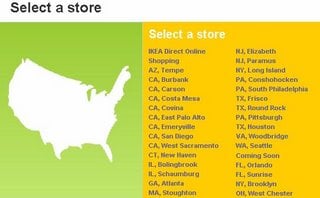Playboy is missing a huge marketing opportunity on Facebook. You can think what you want about the company and what they sell. This article is about marketing only.
I was surprised to see that one of my 200+ friends became a "fan" of Playboy on Facebook - for those of you not into Facebook yet, I know this because on Facebook you get a news feed of what your friends are up to, and when a friend becomes a fan of something, you get a notification. Being a fan of a company is sort of like becoming friends with a person. Companies are starting to create a business page on Facebook (see this article about creating a company or business page on Facebook for free) and then people can become fans. This allows the company to send messages to the fans and post new information on the page that notifies the fans of changes.
My company, HubSpot, which does Internet marketing, recently created a page on Facebook and we have over 120 fans so far. Playboy also has a page, and they have over 1700 fans. Pretty cool. Except here is the problem. There is almost nothing on the page. Playboy, a huge media company - meaning that their job is to publish content - has almost no content on Facebook. They are very rapidly letting down their 1700 fans.

What should Playboy post on Facebook? Well certainly nothing too "adult", but they could post a bunch of things that would be perfect for Facebook.
How Playboy Should Use Facebook, But Isn't
- All the Playboy Bunnies should have profiles. Playboy should help its models maintain Facebook profiles, and they should be fans of Playboy. They could join under professional names, to maintain their privacy, but allowing the fans to interact with the Playboy bunnies ads a whole level of personal interaction never possible in a mass scale before. This is a great way to engage your fan base.
- Add events.Playboy makes a lot of money allowing other brands to use the Playboy brand (Dewars Scotch has thrown "Playboy Parties" in a number of cities before) What if these events were virtual? Or what if they used Facebook to promote live events? This could be a powerful way to quickly, cheaply and easily promote events.
- More photos. I mean, what really is Playboy without photos. Of course they don't want to give away stuff they charge for, but all they have posted now is one album with 6 photos. This is like posting 6 words from an entire set of encyclopedias. Post some more photos!!! You probably have a trillion photos in your archives.
- Develop a Facebook App. By developing an application, Playboy could further engage the Facebook community. There are lots of ideas for a Facebook App for Playboy - voting for your favorite Playboy bunny, something interactive that helped you live the Playboy lifestyle, some way to interact with Hugh Hefner. Lots of ideas, so little time.
I hope this article has given people at companies besides Playboy some ideas of how they can use Facebook for marketing. And, I also hope it makes you think about launching something before you are ready when it can disappoint over a thousand of your fans.
Finally, if anyone from Playboy is reading this and would like to hire me as a consultant to talk through more details on what you should be doing on Facebook, contact me using the contact form at http://www.mikevolpe.com/



 Any good sales person knows that you don't give the same sales pitch to every prospect. You customize your materials and presentation to what the prospect wants to hear based on a bunch of factors (industry, experience, business challenges, etc.). You can also get
Any good sales person knows that you don't give the same sales pitch to every prospect. You customize your materials and presentation to what the prospect wants to hear based on a bunch of factors (industry, experience, business challenges, etc.). You can also get